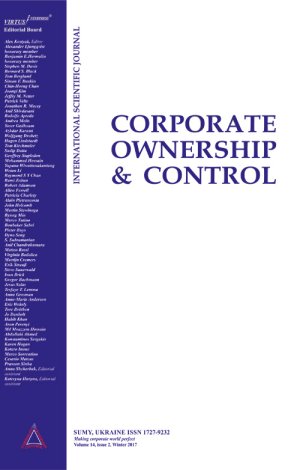
-
 Journal menu
Journal menu

- General information
- Editorial Board and External Reviewers
- Journal Policies
- Publication Ethics and Malpractice Statement
- Instructions for authors
- Paper reviewing
- Article processing charge
- Feedback from stakeholders
- Journal’s Open Access statement
- Order hard copies of the journal
- 50 most cited papers in the journal
ASYMMETRIC INFORMATION AND MONITORING BEHAVIOUR IN BLOCK TRADES: AN EMPIRICAL ANALYSIS FOR SPAIN
Download This ArticleAbstract
The aim of our study is to analyse if the purchase of share blocks in the Spanish capital market is due to any of the two factors that have justified block transactions in financial literature: monitoring or information advantage. Our results show that the control group, institutional investors and insiders have a higher probability to buy a block when an increase in value creation is expected due to the higher monitoring of managers carried out by these investors. A higher probability of purchase, only by insiders, is also observed when there is more asymmetric information and therefore the acquirers can benefit from their position of better informed investors.
Keywords: Partial Control Market, Corporate Governance, Asymmetric Information
How to cite this paper: Díaz Díaz, B., & García-Olalla, M. (2004). Asymmetric information and monitoring behaviour in block trades: An empirical analysis for Spain. Corporate Ownership & Control, 2(1), 25-37. https://doi.org/10.22495/cocv2i1p2

















